
St. Gallen: A Swiss Gem of Heritage and Nature
Nestled between Lake Constance and the Appenzell Alps, St. Gallen is a city that effortlessly marries history, culture, and natural beauty. Known for its UNESCO World Heritage-listed Abbey of St. Gall, this city offers a unique blend of medieval charm and modern vibrancy. The Abbey Library, with its Baroque architecture and ancient manuscripts, is a must-visit for history buffs and book lovers alike. St. Gallen is not just about its rich history; it is also a city teeming with contemporary culture. The St. Gallen Art Museum and the Textile Museum provide fascinating insights into the local artistic and industrial heritage. Wander through the old town with its colorful oriel windows and discover quaint shops, cafes, and restaurants that offer a taste of Swiss hospitality. For nature enthusiasts, the nearby Appenzell Alps provide endless opportunities for hiking and exploring. The Drei Weieren (Three Ponds) area is perfect for a leisurely stroll or a refreshing swim in summer. St. Gallen's strategic location makes it easy to explore the wider region, including a trip to the picturesque Lake Constance.
Local tips in St. Gallen
- Visit the Abbey Library early in the morning to avoid crowds.
- Take a guided tour to learn about the city's rich textile history.
- Explore the Drei Weieren area for a peaceful retreat close to the city.
- Try the local specialty, Olma bratwurst, at one of the traditional eateries.
- Use public transportation to easily access surrounding attractions like Lake Constance and the Appenzell Alps.
St. Gallen: A Swiss Gem of Heritage and Nature
Nestled between Lake Constance and the Appenzell Alps, St. Gallen is a city that effortlessly marries history, culture, and natural beauty. Known for its UNESCO World Heritage-listed Abbey of St. Gall, this city offers a unique blend of medieval charm and modern vibrancy. The Abbey Library, with its Baroque architecture and ancient manuscripts, is a must-visit for history buffs and book lovers alike. St. Gallen is not just about its rich history; it is also a city teeming with contemporary culture. The St. Gallen Art Museum and the Textile Museum provide fascinating insights into the local artistic and industrial heritage. Wander through the old town with its colorful oriel windows and discover quaint shops, cafes, and restaurants that offer a taste of Swiss hospitality. For nature enthusiasts, the nearby Appenzell Alps provide endless opportunities for hiking and exploring. The Drei Weieren (Three Ponds) area is perfect for a leisurely stroll or a refreshing swim in summer. St. Gallen's strategic location makes it easy to explore the wider region, including a trip to the picturesque Lake Constance.
When is the best time to go to St. Gallen?
Iconic landmarks you can’t miss
Abbey of Saint Gall
Explore the Abbey of Saint Gall, a UNESCO World Heritage Site, showcasing stunning architecture, a historic library, and rich monastic heritage in St. Gallen, Switzerland.
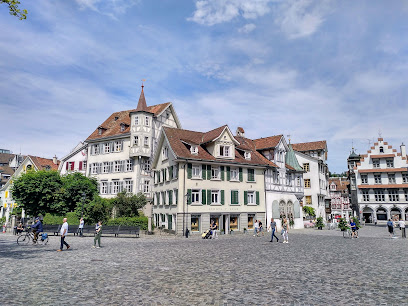
St. Gallen Cathedral
Discover the stunning baroque architecture and cultural significance of St. Gallen Cathedral, a UNESCO World Heritage site in Switzerland.
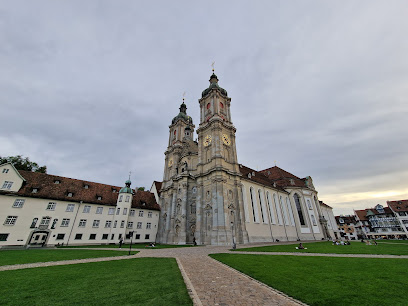
Botanischer Garten
Explore the lush landscapes and diverse plant life at St. Gallen's Botanical Garden, a serene escape for nature lovers and families.
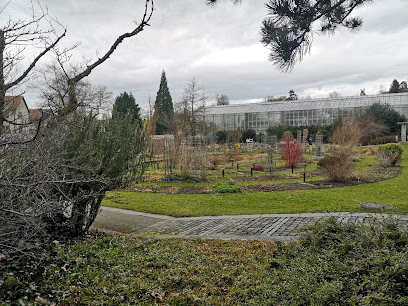
Waaghaus
Explore the Waaghaus in St. Gallen, an iconic historical landmark that showcases Swiss cultural heritage and vibrant community events.
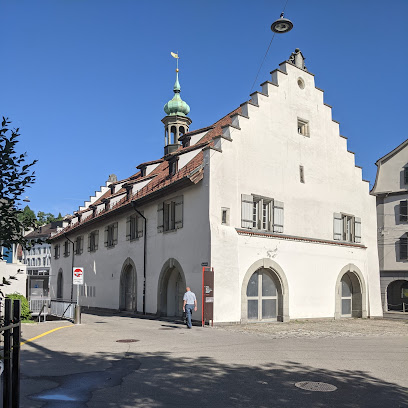
Vadian Monument
Explore the Vadian Monument in St. Gallen, a significant sculpture honoring the city's humanist legacy amidst vibrant local culture.
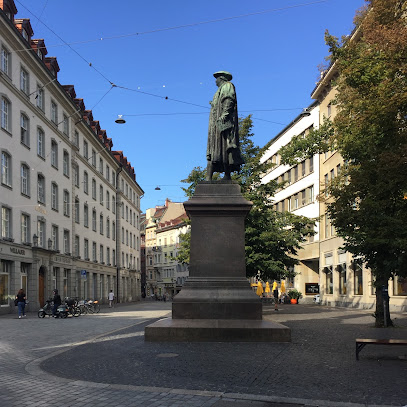
Broderbrunnen
Discover the enchanting Broderbrunnen in St. Gallen, a historical landmark that embodies the city's rich heritage and artistic charm.
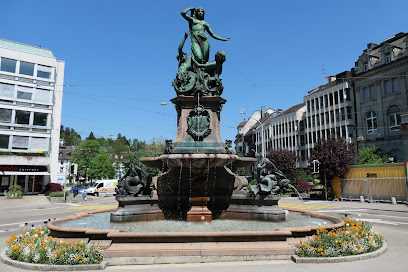
Charles' Gate
Explore the stunning Charles' Gate, a historical landmark in St. Gallen, Switzerland, showcasing magnificent Gothic architecture and rich cultural heritage.
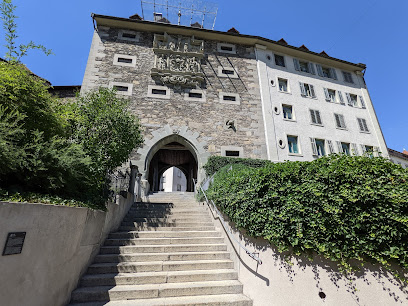
Stägestadt St. Gallen Falkenburgweg
Explore the enchanting Stägestadt St. Gallen Falkenburgweg, where nature and culture intertwine in a breathtaking Swiss setting filled with history and charm.
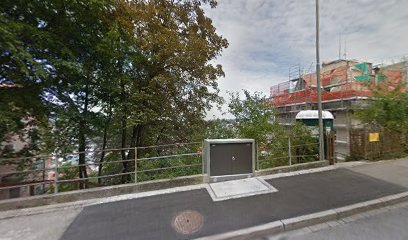
Unmissable attractions to see
Wildpark Peter und Paul
Explore Wildpark Peter und Paul, a scenic wildlife park in St. Gallen, where nature lovers can encounter native Swiss animals and stunning hiking trails.
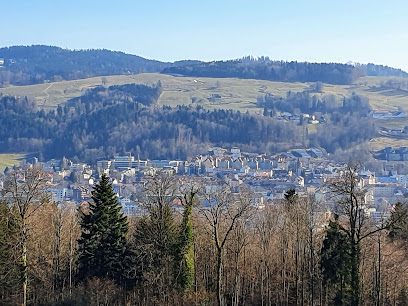
Drei Weieren
Explore the tranquil lakes and scenic trails of Drei Weieren, a natural oasis in St. Gallen, Switzerland, perfect for outdoor enthusiasts and relaxation.
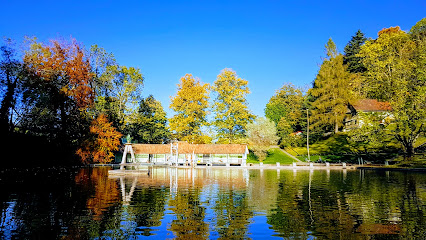
Natural History Museum St. Gallen
Explore the Natural History Museum St. Gallen, where the past meets the present in a captivating journey through Earth’s wonders.
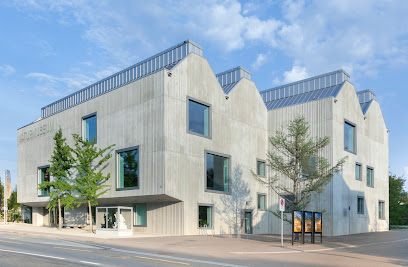
Botanischer Garten
Experience the tranquil beauty of St. Gallen's Botanical Garden, featuring a diverse collection of plants and serene landscapes perfect for relaxation.
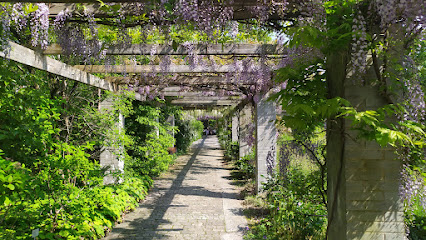
Stadtpark
Discover the serene beauty of Stadtpark in St. Gallen, a perfect blend of nature and art amidst the vibrant city life.
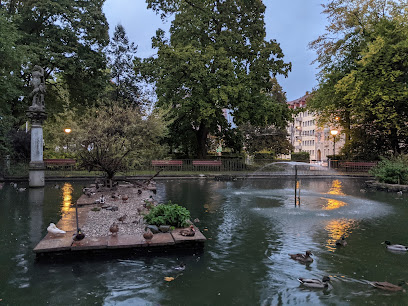
Mülenenschlucht
Explore the stunning beauty of Mülenenschlucht, a natural gorge near St. Gallen, Switzerland, featuring breathtaking landscapes and tranquil swimming spots.
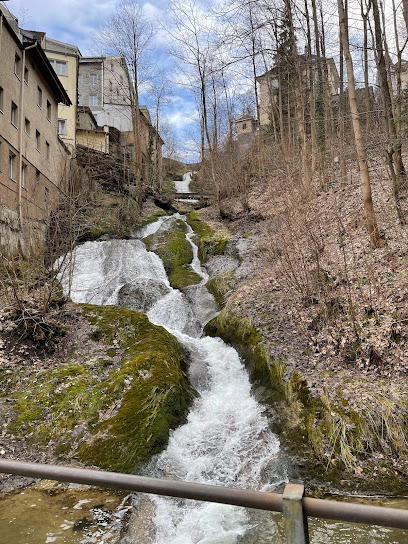
Waaghaus
Explore the historic Waaghaus in St. Gallen, a landmark that combines rich heritage with vibrant cultural experiences in the heart of Switzerland.
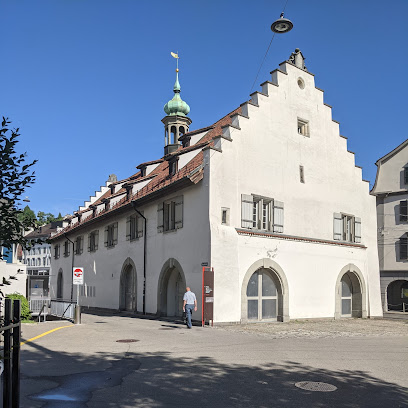
Freudenberg
Experience the breathtaking scenery and tranquility of Freudenberg, a scenic gem in St. Gallen, Switzerland, perfect for nature lovers and explorers.
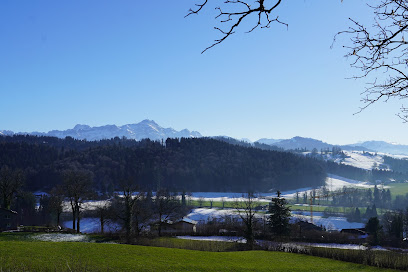
Wenigerweiher
Wenigerweiher: A tranquil lake in St. Gallen, perfect for nature lovers seeking relaxation and scenic beauty.
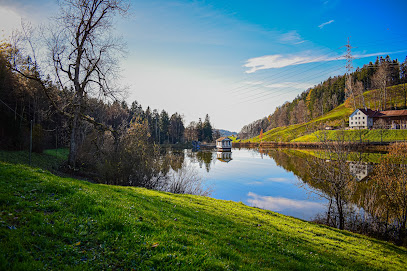
Schule park Marktplatz
Explore the serene beauty of Schule Park Marktplatz in St. Gallen, a perfect escape for relaxation and cultural experiences in Switzerland.
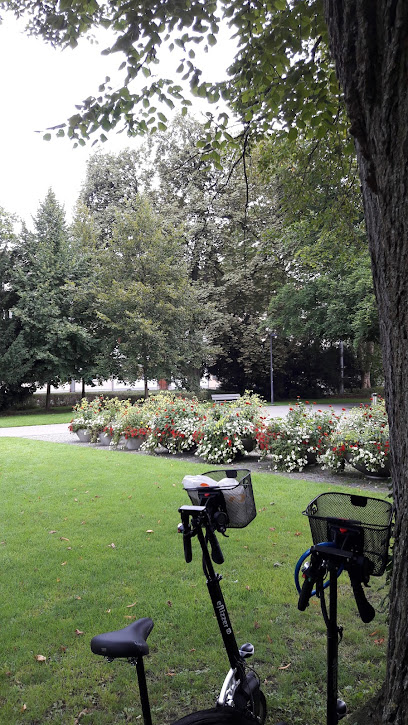
Aussichtspunkt Solitüdenweg
Discover the stunning viewpoints and tranquil hiking trails at Aussichtspunkt Solitüdenweg in St. Gallen, a must-visit for nature lovers.
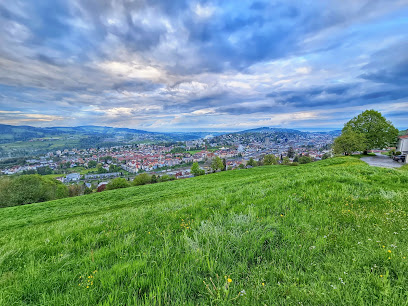
Stiftung Sitterwerk
Explore the vibrant art center of Stiftung Sitterwerk in St. Gallen, where contemporary art meets innovative craftsmanship in a cultural haven.
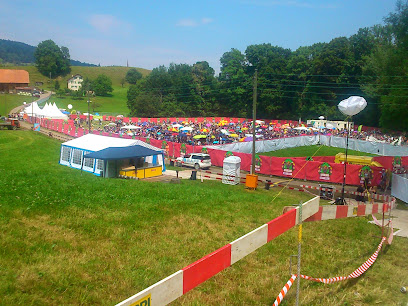
open art museum
Discover contemporary art and vibrant creativity at the Open Art Museum in St. Gallen, a must-visit destination for art lovers.
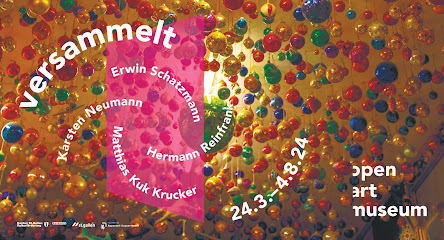
Broderbrunnen
Experience the charm and history of Broderbrunnen in St. Gallen, a stunning landmark that embodies the cultural heritage of Switzerland.
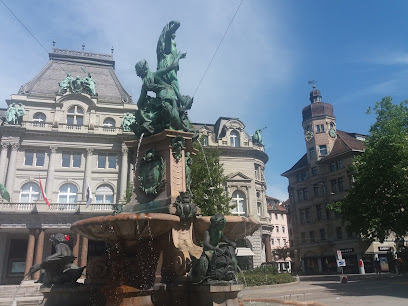
Seifenmuseum
Explore the unique Seifenmuseum in St. Gallen, Switzerland, and immerse yourself in the fascinating world of soap-making and its rich history.
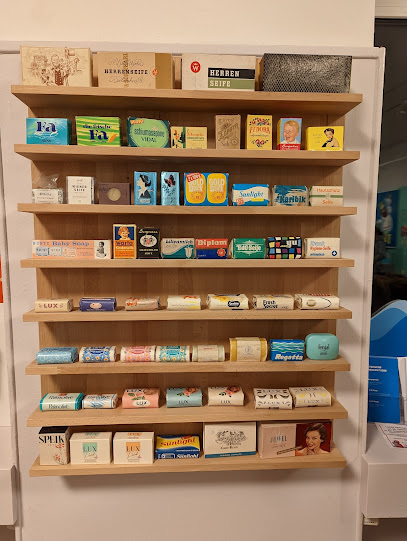
Essential places to dine
Marktplatz
Experience authentic Swiss cuisine at Marktplatz in St. Gallen—where tradition meets taste in every bite.
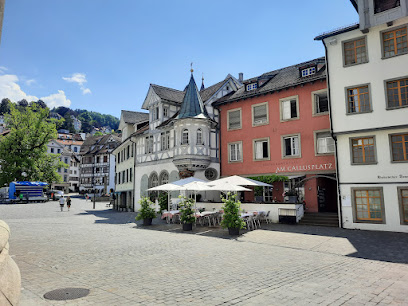
Stars and Stripes
Experience authentic American cuisine at Stars and Stripes in St. Gallen - where vibrant flavors meet a welcoming atmosphere.
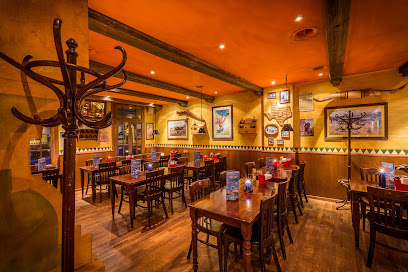
tibits St. Gallen
Experience vibrant vegetarian cuisine at tibits St. Gallen - where fresh flavors meet sustainable dining.
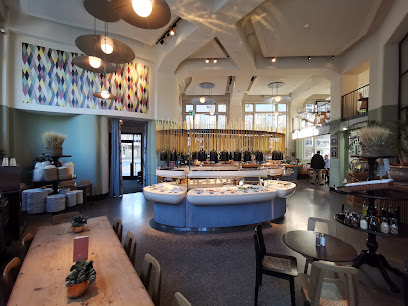
Al Capone
Savor premium steaks at Al Capone, St. Gallen's top destination for meat lovers seeking gourmet flavors and a luxurious dining atmosphere.

Fondue Beizli
Experience authentic Swiss fondue at Fondue Beizli in St. Gallen - a culinary delight for every visitor.
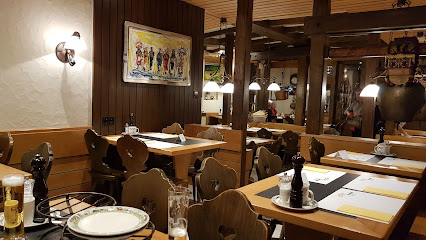
Restaurant Guggeien-Höchst
Discover authentic Swiss flavors at Restaurant Guggeien-Höchst in St. Gallen – a must-visit culinary destination for every tourist.
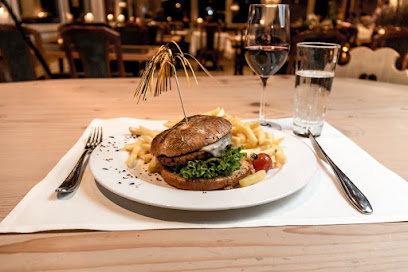
Lagerhaus
Discover the exquisite flavors of grilled cuisine at Lagerhaus in St. Gallen - where every meal is a celebration of taste.
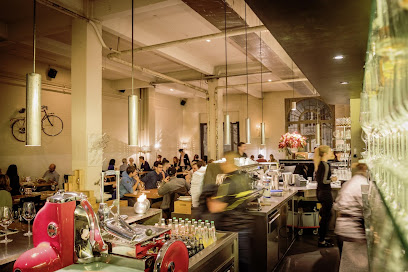
Dreilinden
Experience authentic Swiss cuisine at Dreilinden in St. Gallen – where tradition meets culinary innovation.
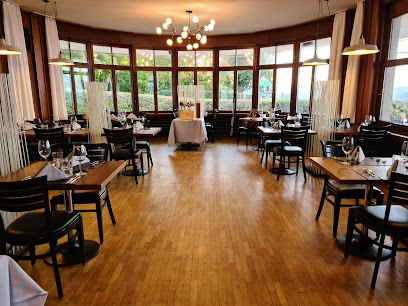
Restaurant Stickerei
Discover the fusion of gourmet hamburgers and vegan delights at Restaurant Stickerei in St. Gallen – a culinary hotspot not to be missed.
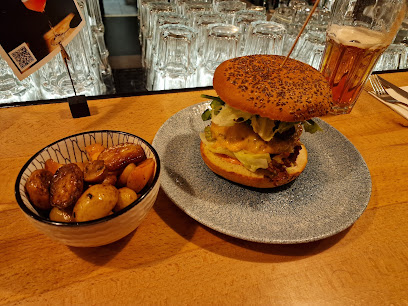
Candela
Experience exceptional dining at Candela in St. Gallen - where local ingredients meet culinary innovation for an unforgettable meal.
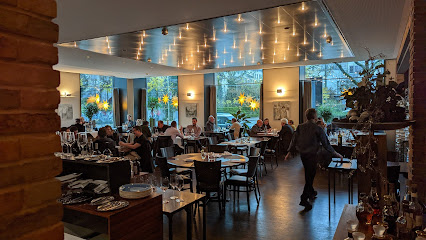
Acquarello
Experience authentic Italian cuisine at Acquarello in St. Gallen—where every dish tells a story.
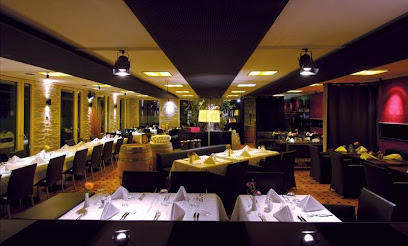
Sauceria Restaurant & Bistro
Discover the best of Swiss cuisine at Sauceria Restaurant & Bistro in St. Gallen—where flavor meets tradition in every dish.
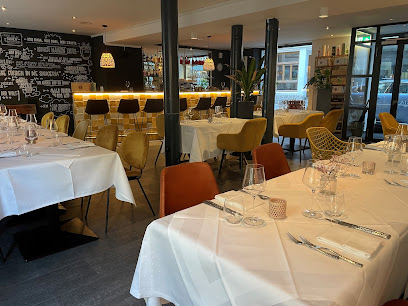
Restaurant Brauwerk
Discover the perfect blend of traditional Swiss cuisine and craft brewing at Restaurant Brauwerk in St. Gallen.
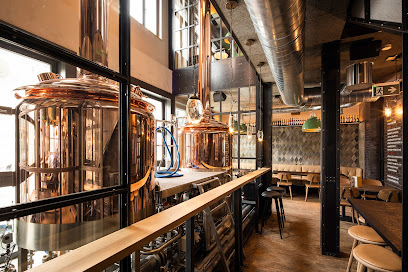
Zum Goldenen Schäfli
Discover exquisite Swiss cuisine at Zum Goldenen Schäfli in St. Gallen, where tradition meets flavor for an unforgettable dining experience.
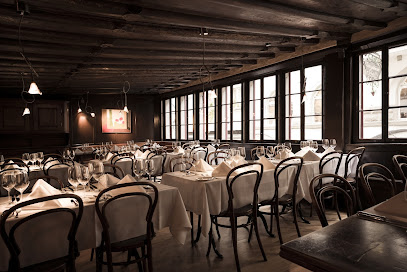
Baratella
Experience authentic Italian cuisine at Baratella in St. Gallen – where every dish tells a story.
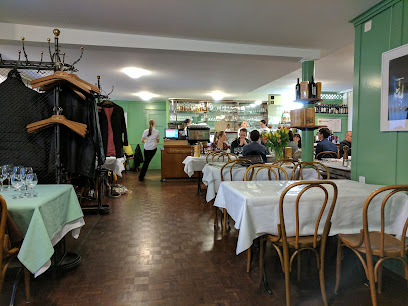
Markets, malls and hidden boutiques
House of Jeans
Explore the House of Jeans in St. Gallen for the finest denim selection and an exceptional shopping experience in the heart of Switzerland.
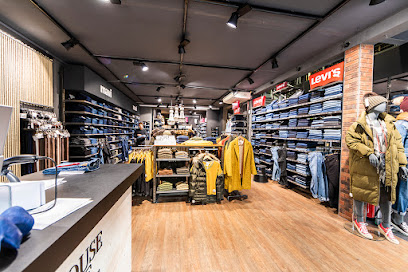
Flying Tiger Copenhagen
Explore the colorful and quirky world of Flying Tiger Copenhagen, a unique gift shop in St. Gallen filled with playful items for all ages.
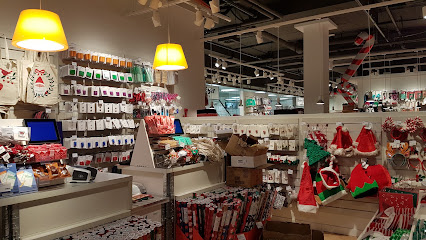
Metro Boutique St.Gallen
Discover the charm of fashion at Metro Boutique St. Gallen, where style meets elegance for the whole family.
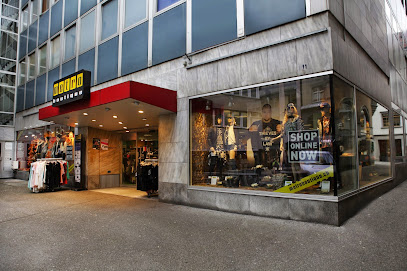
IQOS Boutique
Discover the IQOS Boutique in St. Gallen, where modern smoking alternatives meet style and sophistication.
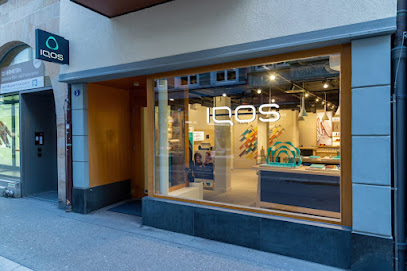
Flippy Shop St.Gallen
Explore Flippy Shop in St. Gallen for unique Swiss gifts and local crafts, perfect for souvenirs and a touch of Swiss culture.
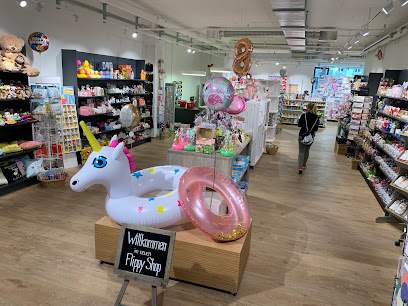
TheBuyAndSellStore
Explore TheBuyAndSellStore in St. Gallen for unique thrifted fashion and treasures that celebrate sustainability and style.
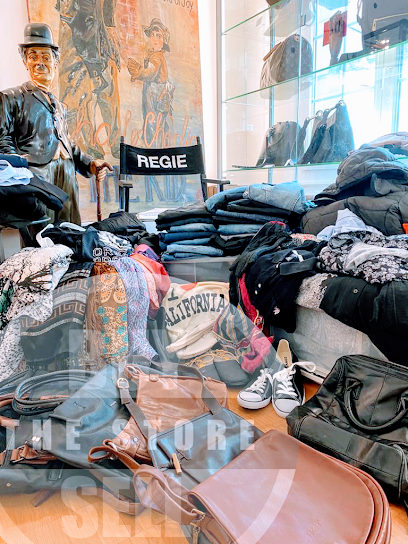
s Fachl
Discover unique local gifts and artisanal treasures at s Fachl in St. Gallen, a charming gift shop that embodies Swiss craftsmanship.
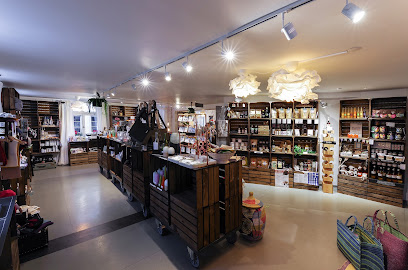
LAVKA
Explore LAVKA in St. Gallen, a unique gift shop offering a wide range of home goods, toys, and seasonal delights for every occasion.
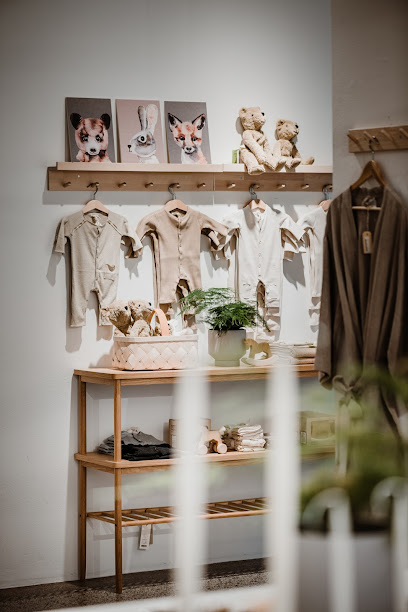
first & second hand boutique st. gallen GmbH
Explore unique fashion treasures at First & Second Hand Boutique St. Gallen, where sustainability meets style in a charming atmosphere.
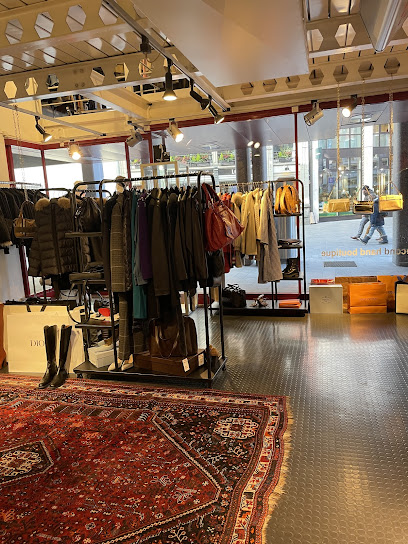
EigenArt Secondhand
Explore EigenArt Secondhand in St. Gallen for unique, sustainable fashion finds and a delightful thrifting experience.
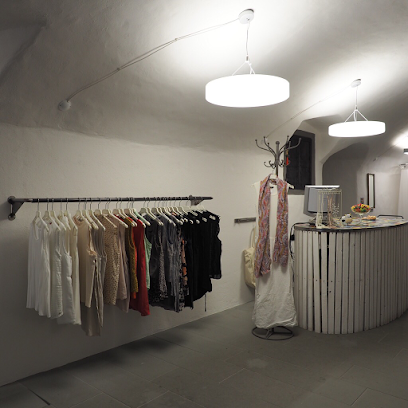
Tarzan Store St. Gallen
Explore the Tarzan Store in St. Gallen for unique toys and gifts that inspire joy and creativity in every visitor.
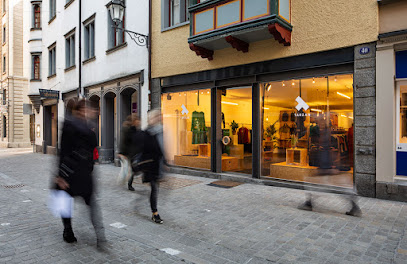
Old Town Shop
Explore the Old Town Shop in St. Gallen for unique souvenirs and local delicacies that embody the spirit of Switzerland.
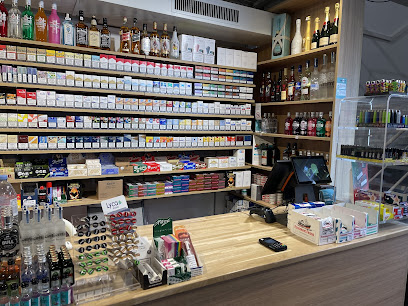
Atelier Stella
Explore Atelier Stella in St. Gallen for unique Swiss gifts, exquisite leather goods, and a delightful selection of spices, embodying local craftsmanship.

FIZZEN St. Gallen
Discover contemporary Swiss fashion at FIZZEN St. Gallen, a vibrant clothing shop offering unique styles and exceptional customer service.
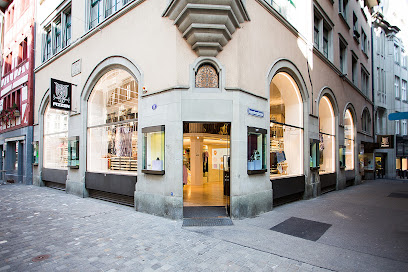
Boutique Roma
Boutique Roma in St. Gallen: A stylish destination for women's clothing, men's apparel, and unique fashion accessories.
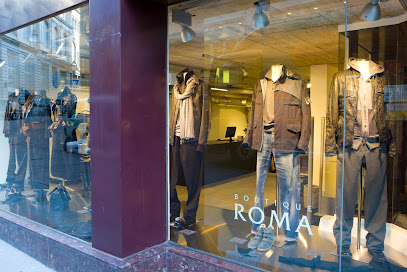
Essential bars & hidden hideouts
Süd Bar
Discover the charm of Süd Bar in St. Gallen, a cozy bar and café perfect for relaxation and enjoying local flavors.
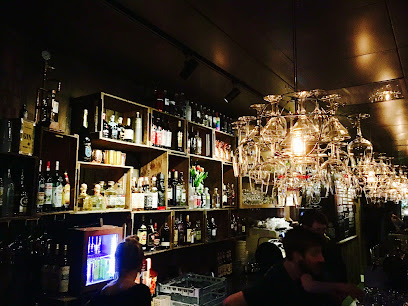
O'Five Pub
Discover the lively O'Five Pub in St. Gallen, where delicious drinks and hearty meals meet a vibrant social atmosphere.
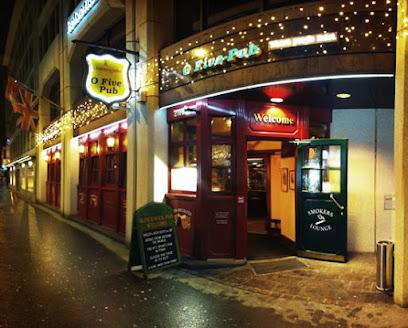
The Irish Pub
Discover the charm of Ireland at The Irish Pub in St. Gallen, where traditional cuisine and drinks meet a lively atmosphere.
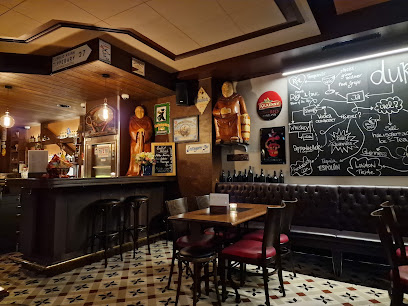
Baracca Bar
Discover the vibrant nightlife at Baracca Bar in St. Gallen, where delightful drinks and a lively atmosphere await every visitor.
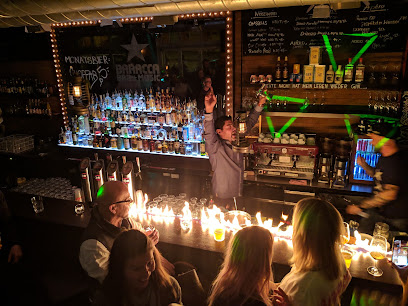
Einstein Bar
Experience Swiss hospitality at the Einstein Bar in St. Gallen, where cozy ambiance meets an extensive drink selection.
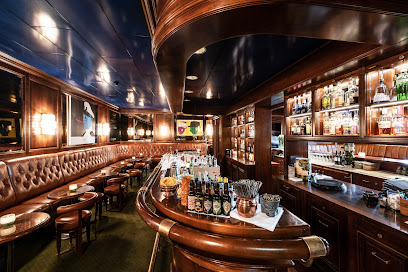
Lunaris Chillout Bar
Discover Lunaris Chillout Bar in St. Gallen: a tranquil retreat with exquisite drinks and a soothing atmosphere perfect for unwinding.
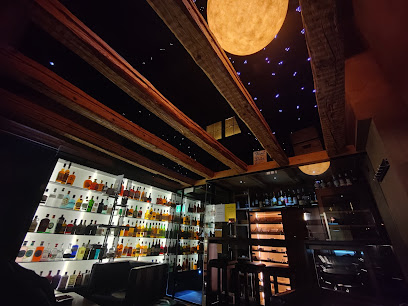
Rock Story
Discover Rock Story, a lively bar in St. Gallen, where great drinks and a vibrant atmosphere come together for an unforgettable night out.
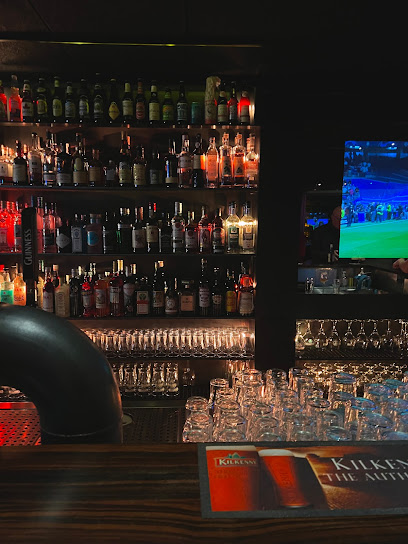
Paparazzo Bar
Discover the vibrant nightlife of St. Gallen at Paparazzo Bar, where creative cocktails and a lively atmosphere await you.
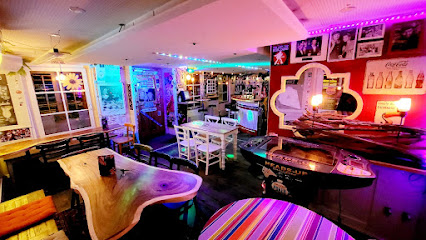
Magnum Wine Bar
Explore Magnum Wine Bar in St. Gallen, where exquisite wines meet a cozy atmosphere, perfect for unwinding after a day of sightseeing.
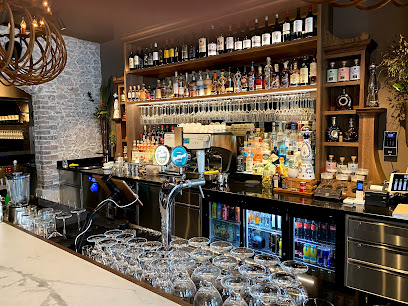
Timeout Bar
Discover Timeout Bar in St. Gallen, a vibrant bar with a trendy atmosphere, perfect for unwinding with drinks and live entertainment.

The good wave
Discover the vibrant ambiance of The Good Wave, St. Gallen's premier bar offering an exquisite range of drinks and a cozy atmosphere.
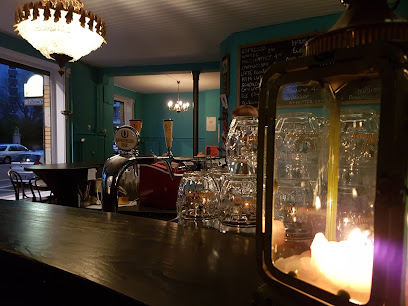
Maverick's Cocktail Bar
Discover the vibrant atmosphere and innovative cocktails at Maverick's Cocktail Bar in St. Gallen, a must-visit for nightlife enthusiasts.
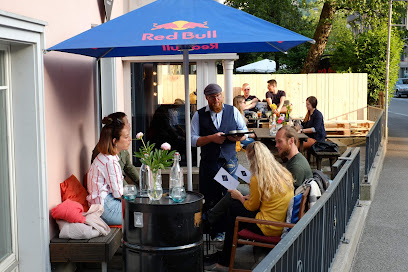
Picante Bar
Discover the vibrant Picante Bar in St. Gallen, where locals and tourists mingle over delicious drinks in a lively atmosphere.
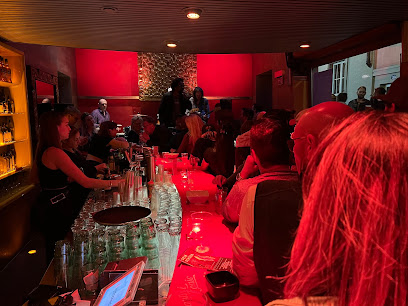
Alt St. Gallen
Discover the lively ambiance and diverse drink selection at Alt St. Gallen, the perfect spot for unwinding in the heart of Swiss nightlife.
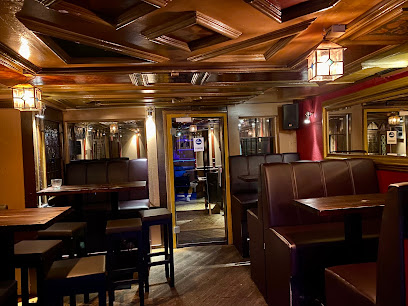
Local Phrases about St. Gallen
-
- HelloGrüezi
[ɡryətsi] - GoodbyeAdieu
[adiø] - YesJa
[ja] - NoNei
[nai] - Please/You're welcomeBitte
[bɪtə] - Thank youMerci
[mɛrˈsi] - Excuse me/SorryEntschuldigung
[ɛntˈʃʊldɪɡʊŋ] - How are you?Wie geht es Ihnen?
[viː ɡeːt ɛs ˈiːnən] - Fine. And you?Gut. Und Ihnen?
[ɡuːt ʊnt ˈiːnən] - Do you speak English?Sprechen Sie Englisch?
[ˈʃprɛçən ziː ˈɛŋlɪʃ] - I don't understandIch verstehe nicht
[ɪç fɛrˈʃteːə nɪçt]
- HelloGrüezi
-
- I'd like to see the menu, pleaseIch möchte bitte die Speisekarte sehen
[ɪç ˈmœçtə ˈbɪtə diː ˈʃpaɪ̯zəˈkartə ˈzeːən] - I don't eat meatIch esse kein Fleisch
[ɪç ˈɛsə kaɪ̯n flaɪ̯ʃ] - Cheers!Prost!
[prost] - I would like to pay, pleaseIch möchte bitte bezahlen
[ɪç ˈmœçtə ˈbɪtə bəˈzaːlən]
- I'd like to see the menu, pleaseIch möchte bitte die Speisekarte sehen
-
- Help!Hilfe!
[ˈhɪlfə] - Go away!Gehen Sie weg!
[ˈɡeːən ziː vɛk] - Call the Police!Rufen Sie die Polizei!
[ˈrʊfən ziː diː pɔliˈt͡saɪ̯] - Call a doctor!Rufen Sie einen Arzt!
[ˈrʊfən ziː ˈaɪ̯nən ˈaʁt͡s] - I'm lostIch habe mich verirrt
[ɪç ˈhaːbə mɪç fɛˈʁɪrt] - I'm illIch bin krank
[ɪç bɪn kraŋk]
- Help!Hilfe!
-
- I'd like to buy...Ich möchte ... kaufen
[ɪç ˈmœçtə ... kaʊ̯fən] - I'm just lookingIch schaue nur
[ɪç ˈʃaʊ̯ə nʊr] - How much is it?Wie viel kostet es?
[viː fiːl ˈkɔstət ɛs] - That's too expensiveDas ist zu teuer
[das ɪst tsuː tɔɪ̯ər] - Can you lower the price?Können Sie den Preis senken?
[ˈkœnən ziː dɛn praɪ̯s ˈzɛŋkən]
- I'd like to buy...Ich möchte ... kaufen
-
- What time is it?Wie spät ist es?
[viː ʃpɛːt ɪst ɛs] - It's one o'clockEs ist ein Uhr
[ɛs ɪst aɪ̯n ʔuːr] - Half past (10)Halb (10) vor
[halb (10) fɔr] - MorningMorgen
[ˈmɔrɡən] - AfternoonNachmittag
[ˈnaχˌmɪtaɡ] - EveningAbend
[ˈaːbənt] - YesterdayGestern
[ˈɡɛstərn] - TodayHeute
[ˈhɔɪ̯tə] - TomorrowMorgen
[ˈmɔrɡən] - 1Eins
[aɪ̯ns] - 2Zwei
[t͡svaɪ̯] - 3Drei
[dʁaɪ̯] - 4Vier
[fiːɐ̯] - 5Fünf
[fʏnf] - 6Sechs
[zɛks] - 7Sieben
[ˈziːbən] - 8Acht
[axt] - 9Neun
[nɔɪ̯n] - 10Zehn
[t͡seːn]
- What time is it?Wie spät ist es?
-
- Where's a/the...?Wo ist ein/der ...?
[vo ɪst aɪ̯n/dɛr] - What's the address?Was ist die Adresse?
[vas ɪst diː ˈadʁɛsə] - Can you show me (on the map)?Können Sie mir das zeigen (auf der Karte)?
[ˈkœnən ziː mɪr das ˈʦiːɡən (aʊ̯f deːɐ̯ ˈkaʁtə)] - When's the next (bus)?Wann kommt der nächste (Bus)?
[van kɔmt deːɐ̯ ˈnɛçstə (bʊs)] - A ticket (to ....)Eine Fahrkarte (nach ...)
[ˈaɪ̯nə ˈfaːʁkartə (naχ ...)]
- Where's a/the...?Wo ist ein/der ...?
History of St. Gallen
-
St. Gallen was founded in the 7th century by the Irish monk Gallus. He established a hermitage at the site, which eventually grew into the Abbey of St. Gall. The abbey became a major center of learning and culture in the Middle Ages, attracting scholars from across Europe.
-
The Abbey of St. Gall is a UNESCO World Heritage site and one of the most important monastic centers in Europe. Founded in 719, the abbey's library is renowned for its vast collection of medieval manuscripts, some of which date back to the 8th century. The Baroque cathedral, constructed between 1755 and 1768, is an architectural marvel with its twin towers and ornate interiors.
-
The St. Gallen Trade Fair, known as OLMA, is an annual event that has been held since 1943. It is one of Switzerland's largest public fairs, showcasing agriculture, industry, and regional culture. The fair is a significant event in the city's calendar and attracts visitors from all over the country.
-
During the 19th century, St. Gallen became a global center for the textile industry, particularly known for its embroidery. The city's wealth grew substantially during this period, and many of the grand buildings and villas in St. Gallen today were constructed during this era of prosperity. The Textile Museum offers a comprehensive look at this important part of the city's history.
-
The St. Gallen Symposium, founded in 1970 by students at the University of St. Gallen, is a leading annual conference that brings together decision-makers, academics, and young leaders from around the world. The symposium focuses on discussing global economic, political, and social issues, fostering dialogue between generations and cultures.
-
The Drei Weieren, or Three Ponds, are a historic set of artificial ponds that date back to the 17th century. Originally created to provide water for the textile mills, they are now a popular recreational area offering stunning views of the city and the Alpstein mountains. The area is a favorite spot for both locals and tourists, especially in the summer.
-
In addition to the Abbey of St. Gall, the city boasts several other sites recognized by UNESCO. These include the Abbey Library, which is one of the oldest and most beautiful libraries in the world, and the Stiftsbezirk (Abbey District), known for its remarkable preservation of Baroque architecture and its role in European monastic history.
-
Founded in 1898, the University of St. Gallen (HSG) is one of Europe's leading business schools. It has a strong reputation for its programs in management, economics, law, and international affairs. The university plays a significant role in the intellectual and cultural life of the city, hosting numerous events, lectures, and conferences throughout the year.
St. Gallen Essentials
-
St. Gallen is easily accessible by various means of transportation. The nearest international airport is Zurich Airport (ZRH), approximately 85 kilometers away. From Zurich, you can take a direct train to St. Gallen, which takes about an hour. Alternatively, you can drive or take a bus. St. Gallen is also well-connected by train from other major Swiss cities such as Basel, Bern, and Geneva.
-
St. Gallen has an efficient public transportation system, including buses and trains. The city's compact size makes it easy to explore on foot or by bike. For longer distances, taxis and car rental services are available. The city's main train station, St. Gallen Hauptbahnhof, is a central hub for regional and international rail services. Consider purchasing a Swiss Travel Pass for unlimited travel on public transportation across Switzerland.
-
The official currency is the Swiss Franc (CHF). Credit and debit cards are widely accepted in hotels, restaurants, and shops. ATMs are plentiful and can be found throughout the city. While many establishments accept Euros, it is advisable to have Swiss Francs for smaller transactions. Tipping is not mandatory but is appreciated; rounding up the bill or adding a small amount (5-10%) is customary.
-
St. Gallen is generally a safe city for tourists. However, as in any urban area, it is wise to take standard precautions. Avoid walking alone at night in poorly lit areas, and keep an eye on your belongings in crowded places such as markets and public transportation. There are no specific high-crime areas targeting tourists, but always remain vigilant and aware of your surroundings.
-
In case of emergency, dial 112 for immediate assistance. St. Gallen has well-equipped medical facilities, including the Kantonsspital St. Gallen, which provides comprehensive medical services. Pharmacies are available for minor health issues and over-the-counter medications. It is advisable to have travel insurance that covers medical emergencies.
-
Fashion: Do dress smartly; St. Gallen is known for its stylish residents. Avoid overly casual or revealing clothing, especially in religious sites. Religion: Do respect local customs, especially when visiting churches. Be quiet and dress modestly inside religious buildings. Public Transport: Do validate your ticket before boarding. Don't put your feet on seats and avoid loud conversations. Greetings: Do greet people with a friendly 'Grüezi' (hello in Swiss German). Handshakes are common in formal settings. Eating & Drinking: Do try local specialties like Bratwurst and Rösti. Don't forget to say 'En Guete' (enjoy your meal) before eating.
-
To experience St. Gallen like a local, visit the weekly farmers' market at Marktplatz to buy fresh produce and regional specialties. Explore the Abbey Library, a UNESCO World Heritage site, and don't miss the city's art and cultural events. For a unique experience, take a stroll through the Drei Weieren (Three Ponds) area, a popular spot among locals for swimming and relaxing. Engage with residents, as they are often friendly and willing to share insights about their city.
Nearby Cities to St. Gallen
-
Things To Do in Schellenberg
-
Things To Do in Gamprin
-
Things To Do in Mauren
-
Things To Do in Eschen
-
Things To Do in Dornbirn
-
Things To Do in Bregenz
-
Things To Do in Schaan
-
Things To Do in Vaduz
-
Things To Do in Triesenberg
-
Things To Do in Balzers
-
Things To Do in Zurich
-
Things To Do in St. Anton am Arlberg
-
Things To Do in Arosa
-
Things To Do in Davos
-
Things To Do in Lucerne













